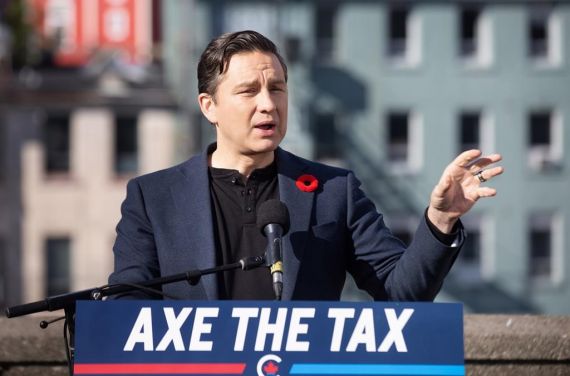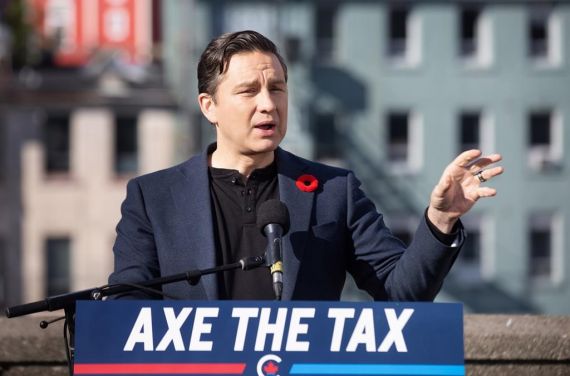
Conservative leader Pierre Poilievre is putting more pressure on the government to remove carbon pricing entirely. (Photo: The Canadian Press)
Carbon pricing is supposed to be a tool to combat climate change, but no other issue is more hotly debated in federal politics.
Federal Prime Minister Justin Trudeau has had to scrutinize more and more requests for exemptions since he announced a moratorium on the carbon tax on fuel oil in October.
Conservative leader Pierre Poilievre is putting more pressure on the government to remove carbon pricing entirely. So far, he has managed to convince many voters that this measure is the main cause of inflation.
Meanwhile, they try to slice prices like sausage. For example, Huron-Bruce Conservative MP Bob Loob has introduced legislation to exempt farmers from paying a carbon tax on natural gas and propane. Mr. Poilievre has made this private member’s account a priority.
Bill C-234 was passed by the Senate in mid-December. But since it contained amendments, it will have to be re-examined by the House of Commons.
The proposed changes limit the temporary exemption to propane used in a grain dryer. If the entire opposition – the Tories, the New Democrats and the Bloc – support it for the first time, it means that a new exemption will have to be granted.
And other premiers are also asking for exemptions for natural gas because, like heating oil for the Atlantic provinces, this product is the main source of heating in their province.
Saskatchewan Premier Scott Moe simply promised to stop collecting taxes for the federal government starting in January.
Brand new Northwest Territories Premier RJ Simpson has asked for an exemption for her entire province, saying the cost of fuel oil is so expensive in the north that she would have already opted for another solution if it existed.
For now, Justin Trudeau remains steadfast in his desire not to open the door to new exemptions.
Michael Bernstein, chief executive of the Clean Prosperity group, says he has faith in the federal premier.
“I don’t expect the current federal government to continue to roll back the program it has put in place,” he believes.
In any case, the elimination of tariffs will not be carried out by shouting pickaxes or ax.
Most economists believe that the most effective way to reduce emissions is through pricing. And many entrepreneurs prefer this system.
“From an economic point of view, it’s the most efficient way to reduce emissions with the least amount of government intervention, the least amount of duties and rules,” points out Heather Exner-Pirot, special adviser on economic transition at the Business Council of Canada. This program focuses on broadcasting only. If we reduce emissions, we pay less. It is really easy. We don’t have to choose a sector, we leave all the work to the market.”
Regulations are more directive and more expensive to implement, says Ms. Erner-Pirot. Businesses generally prefer prices.
Eliminating user fees could even impoverish families in the long run and have international ramifications.
The Parliamentary Budget Office has estimated that by 2030, when the federal carbon tax reaches $170 per tonne, most households will “receive more payments from the Climate Action Incentive than the total amount they pay in federal fuel taxes (direct and indirect). This profit could be $388.
In terms of international impacts, the European Union would likely impose import taxes on products from countries that do not have minimum prices.
“That’s an element to consider,” agrees Mr. Bernstein. For Canada, maintaining the competitiveness of its exports could depend on an effective carbon pricing program.
He acknowledges, however, that this argument will not be easy for voters.
Mia Rabson, The Canadian Press

